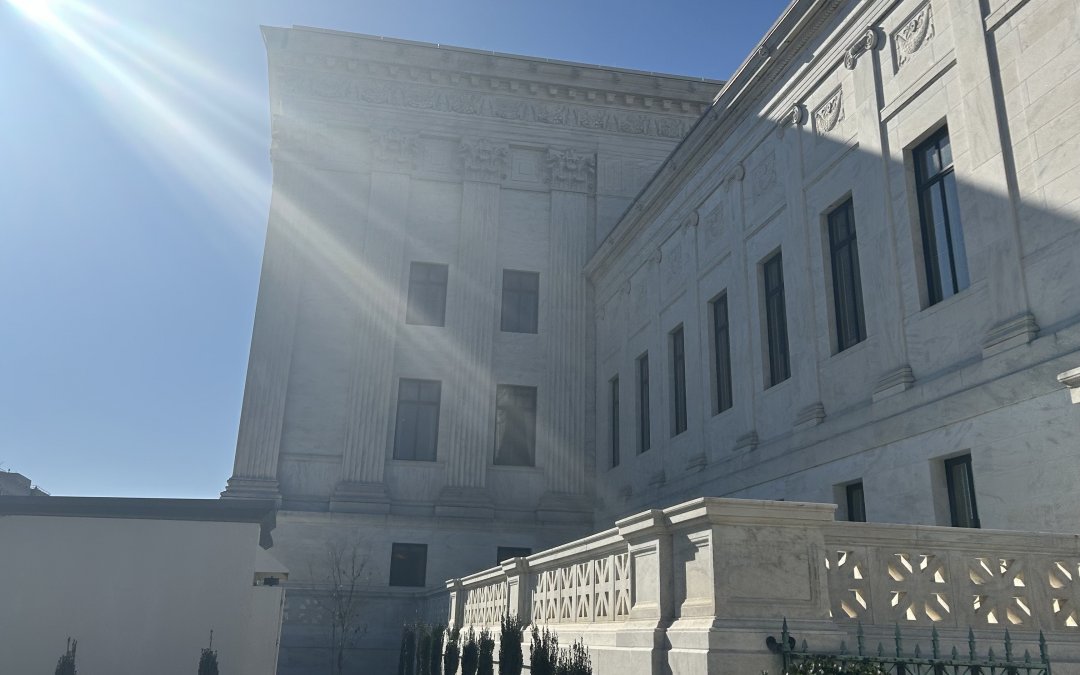WASHINGTON – U.S. Supreme Court justices weighed whether changes in sentencing law can be used as part of a petition for a compassionate release on Wednesday.
In the consolidated cases of Rutherford v. United States and Carter v. United States, plaintiffs raised questions about whether sentencing laws, which were enacted after they had been sentenced and would have reduced their own terms in prison, could be considered when determining “extraordinary and compelling reasons” to grant compassionate release.
Rutherford received a 42-year sentence in 2003, and Carter received a 70-year sentence in 2007, both for multiple firearm offenses in armed robberies. In 2018, Congress passed the First Step Act, lowering mandatory minimums for individuals convicted of multiple offenses at the same time.
If sentenced today, Rutherford would have received a 24-year sentence and Carter a 34-year sentence. Rutherford and Carter did not seek resentencing under the First Step Act, but did use the change in mandatory minimums to support their applications for compassionate release.
The district courts and U.S. Court of Appeals for the 3rd Circuit denied that the defendants’ sentencing disparities were cause for reducing their terms. They instead ruled that because Congress did not make the First Step Act apply retroactively, it couldn’t be used for compassionate release applications, and this created a 6-4 circuit split around the consideration of sentencing changes.
The plaintiffs argue that the law change can be used for compassionate release requests in agreement with the four circuits that allow the justification in a multifactor analysis. In the Sentencing Reform Act of 1984, Congress’ only limit to finding “extraordinary and compelling reasons” for compassionate release is that the decision can’t be based on rehabilitation alone.
The Sentencing Reform Act also created the Sentencing Commission, responsible for sentencing guidelines as an independent agency. In 2023, the Commission voted 4-3, directly allowing a change in law to be considered in “extraordinary and compelling reasons” for defendants who have already completed 10 years of their “unusually long sentences.”
On Wednesday, some justices called into question the Sentencing Commission’s authority over Congress. Justice Clarence Thomas asked about Congress’s decision not to make the First Step Act a retroactive measure. Justice Brett Kavanaugh also said he was concerned that the Commission had “countermanded” Congress.
The U.S. Deputy Solicitor General Eric Feigin supported those questions, arguing the Commission’s definitions of “extraordinary and compelling” were too broad.
Justice Sonya Sotomayor questioned Feigin’s premise, asking what “goalposts,” a comparison first raised by Justice Amy Coney Barrett, the Commission had if Congress hadn’t explicitly set other limitations.
The Justices’ ruling in this case could redefine the authority of the Sentencing Commission, as well as what reasons can be used in future applications for compassionate release.
“There are people across the country whose ability to be free really depends on what the Supreme Court does in this case,” Shanna Rifkin, General Counsel of FAMM, Families Against Mandatory Minimums, who filed an amicus brief in support of the petitioners, said. “Those implications can’t be understated.”


